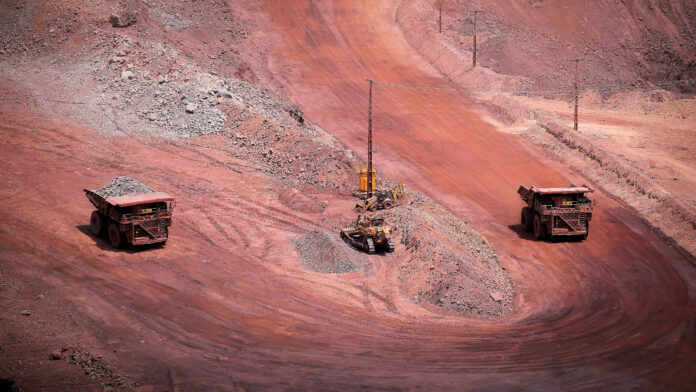Nokia is putting major R&D focus on the mining industry, having won a number of deals for private 4G/5G infrastructure in the sector. Its research arm, Nokia Bell Labs, is working directly with Brazil-based mining company Value to create a “cognitive monitoring network service” to match production data from industrial OT systems to connectivity metrics on its private 4G/5G networks. The objective is to make cellular network data intrinsic to optimising mining operations.
Nokia claims a “long-standing relationship” with Vale, already. Nokia and Telefônica Brazil struck a deal in 2020 to provide a private LTE network to its open-pit Carajás Mine, the world’s largest iron ore mine, in the state of Para in northern Brazil, to support autonomous drilling platforms and autonomous trucks. The network, presented at the time as “upgradeable to 5G”, was implemented to improve productivity, worker comms, and worker safety. The deployment is with Telefônica Brazil’s Vivo business unit.
The Carajás mine, which also produces gold, manganese, bauxite, copper, and nickel, is largely powered by hydroelectric power from the Tucuruí Dam. There has been talk, as well, of using IoT sensors to connect dam monitoring instruments using LTE. The deal has since expanded to cover a private LTE deployment at Vale’s Serra Leste open pit iron ore mine, also in Pará in Brazil – as part of a $3.9 million (R$21 million) agreement with Vivo around Industry 4.0 connectivity. Nokia has deals around private cellular with mining specialists Komatsu and Sandvik, plus with other mines.
The new R&D work with Nokia Bell Labs is about “creating networks that can sense, think and act ahead of time to enable mission-critical communication in a risky environment”, said Nokia. A statement said: “Future mission-critical networks are expected to further enhance productivity and safety by including cognitive services in almost every layer. Nokia Bell Labs and Vale will collaborate to develop such systems within connectivity for enabling future mining operations and to automate planning intelligence.”
It went on: “The relationship aims to create a holistic digital twin for mission-critical connected operations in the mine. The cognitive monitoring network service… [enhances] mining operations by utilising data from mine production systems, including hauling trucks, and autonomous drillers, [and] relating them with network KPIs.” The project uses the Nokia Bell Labs’ so-called Nokia Industrial eXperience (NiX) research platform, it said, which is the basis for its Network Cognitive Digital Mine (CDM) venture, being developed by Nokia’s ‘strategy and technology’ organisation.
Lelio Di Martino, general manager for Nokia’s so-called ‘cognitive digital mine venture’ project, said: “This collaboration… is the next step in making the mining industry safer and more productive. Mines are complex, multi-domain and multi-stakeholder operations where low agility and high uncertainty can significantly impact profitability. The results of this collaboration will enable the creation of cognitive services that can optimise mining processes. Together, we will drive a revolution that will change the way we design and control networks – and mines.”
Mario Azevedo, global manager for engineering and technology projects at Vale, said: “Connectivity is a key enabler for enhancing our operations, driving improvements in efficiency, safety, and performance. By integrating advanced connectivity technologies… we ensure more robust and consistent processes across IT and [OT] groups, real-time monitoring for a safer working environment, and optimised processes to reduce downtime and increase efficiency.”

